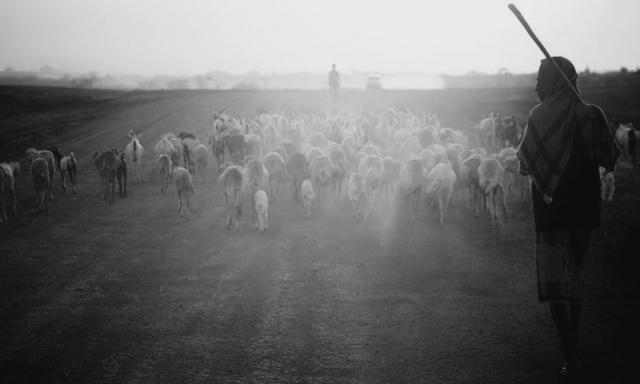

 Article
Article

 SAPARM helps pastoralists in Africa find water through the use of satellite technology and is a leading public-private partnership improving communities around the world.
SAPARM helps pastoralists in Africa find water through the use of satellite technology and is a leading public-private partnership improving communities around the world.

Insights from
Written by
The Darden School of Business’ Institute for Business in Society partners with Concordia and the U.S. Department of State Secretary’s Office of Global Partnerships to present the annual P3 Impact Award, which recognizes leading public-private partnerships that improve communities around the world. This year’s award will be presented at the Concordia Summit 19–20 September 2016. The five finalists will be highlighted on Darden Ideas to Action on Fridays leading up to the event.
Satellite Assisted Pastoral Resource Management (SAPARM)
Climate Change
There are more than 225 million pastoralists in Africa who depend on their livestock as a source of economic, social and physical well-being. To find access to water and grazing grounds, the herders traditionally migrate based on indigenous knowledge, scouts, weather indicators or by sharing information in their seminomadic communities. Unfortunately, these methods have proven unreliable in the face of drought and climate change. Inaccurate information and long journeys with little food and water cause livestock to die, threatening the pastoralists’ income and communities’ food supply.
PCI and its partners launched SAPARM, a program that uses satellite technology able to recognize photosynthetic activity to create customized local grazing maps. The maps are developed together with communities to provide real-time, accurate information on grazing locations to pastoralists.
The combination of using satellite technology and working with community networks and governments empowers pastoralists with the efficiency, control and precision to make more informed migration decisions. Evaluation of the first stage found that almost 80 percent of pastoralists used the map for migration decision-making, resulting in a 48 percent reduction in livestock loss. In the future, the partnership plans to utilize smartphone technology to scale SAPARM and deliver maps directly to individual pastoralists.
Through the use of satellites, a wealth of globally gridded meteorological information can be accessed, and many new datasets are coming online. Satellite information is also advancing water and climate studies, facilitating analysis of the interaction between a changing environment and socio-economic conditions on a global scale.
Adapting to water scarcity and climate change is especially challenging for the millions in Africa who are dependent on agriculture for their livelihood. SAPARM demonstrates that this valuable satellite information can be of use beyond small circles of researchers and disaster responders. When translated into customized local maps, it provides invaluable information on grazing conditions and locations.
It is where innovative research meets practical applications that a tangible difference can be made.
Debaere is a leading international economist, with a focus on international trade, multinationals and trade policy. His work addresses fundamental questions about the extent to which trade theories can explain actual international trade patterns. He has also examined the specific impact of trade policies on trade flows and international prices, as well as on the operations of multinational corporations. In recent years, Debaere has also been researching the economics of water.
B.A., KUL, Belgium; M.A., Ph.D., University of Michigan, Ann Arbor
Satellite Assisted Pastoral Resource Management: A Public-Private Partnership